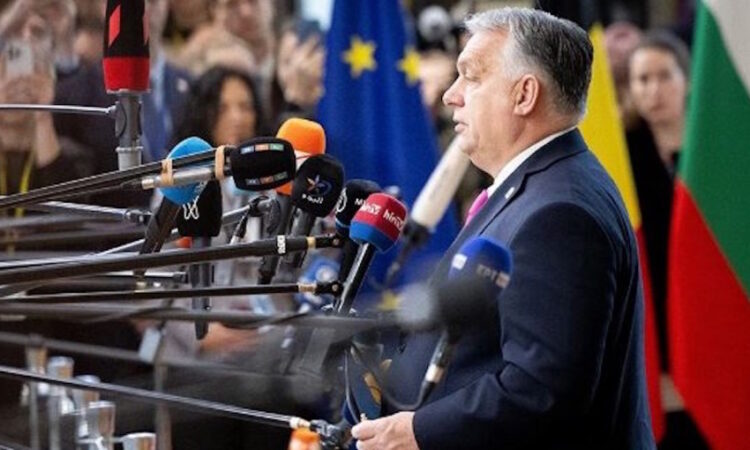bne IntelliNews – European Parliament approves resolution attacking release of EU funds to Hungary

The European Parliament approved a joint resolution on January 18 with a wide majority to investigate the European Commission’s decision in December to release €10.2bn of EU funds to Hungary, and to urge the European Council to examine whether Hungary has committed serious and persistent breaches of EU values, which could in theory lead to the suspension of its voting rights.
The resolution passed with 345–104 votes, with no abstentions, MEPs condemned the “deliberate, continuous and systematic efforts of the Hungarian government to undermine the founding values of the EU”.
EU lawmakers instructed the parliament’s legal service and Legal Affairs Committee to review the Commission’s decision, and if violations of EU law occurred, consider legal action at the European Court of Justice.
The European Commission unblocked €10.2bn in funds for Hungary a day before the EU’s December 14-15 summit. EU Justice Commissioner Didier Reynders said at the time that judicial reforms carried out by the government were in “full compliance with the requirements” set by the EU. However, the timing of the decision was widely seen as a blatant attempt to bribe Hungarian Prime Minister Viktor Orban to support aid for Ukraine and the launch of its accession negotiations at the summit.
At Wednesday’s debate in Strasbourg, European Commission President Ursula von der Leyen defended the decision, saying Budapest had met the four milestones to guarantee the independence of the judiciary. The remaining part of the cohesion funds and RRF funds, totalling €22bn, remains frozen until the Orban goverment meets all 27 super milestones, she stressed.
MEPs believe that Orban is violating the principle of cooperation by blocking a decision on the EU’s multiannual budget needed for aid package for Ukraine.
“The EU must not give in to blackmail in any way and must not bargain for the strategic interests of the EU and its allies in exchange for giving up its values,” according to the text, referring to Orban blocking the proposal to give €50bn in aid to the war-torn country by amending the EU’s seven-year budget.
The fact that the Hungarian premier demands billions in EU funds while denigrating the EU Commission, von der Leyen, and the European Parliament with absurd conspiracy theories, shows the double standards he operates with,” said Monika Hohlmeier (CSU) said at the debate
EU leaders will gather again in February to hammer out a deal and try to bring Orban on board, but Hungary staunchly opposes the amendment of the EU’s seven-year budget Orban has previously proposed, which would split the €50bn aid in four tranches, which would require approval of the transfers annually.
The joint resolution also calls on the European Council and the member states to take action and to determine whether Hungary has committed serious and persistent breaches of EU values under Article 7(2) TEU, Petri Sarvamaa tweeted. The Finnish MEP initiated the procedure against the Commission and managed to collect the 125 signatures needed.
The European Parliament has previously proposed action against Hungary under Article 7, which could lead to the suspension of its voting rights, but member states have refused to follow through. Article 7 is seen as the “nuclear option” and member states fear setting a precedent if it is used. Such a decision would in any case require unanimity and this has so far been lacking.
Fidesz MEP Balazs Hidveghi called the EP resolution shameful and political blackmail. Before the vote, Orban said “they” wanted to give money to Ukraine for four years just five months before the elections, stripping people of their rights to make decisions. Hungary’s nationalist leader is hoping for a breakthrough of nationalist forces in the June election that could ease his isolation.
He has at least one ally in the European Council in the person of Slovakian Prime Minister Robert Fico, who pledged to veto any initiative that would strip Hungary of its voting rights after his meeting in Budapest last week. He also agreed to support his Hungarian counterpart on the question of financial support to Ukraine.






